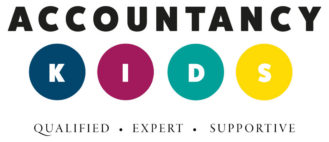Whether you are a registered childminder, self-employed childcare provider, foster parent or run a childcare facility you should be signed up to a pension scheme. Whilst the rules are different depending on if you are employed or self-employed the theory behind pensions is the same – you need to save for your retirement!
Employer
If you are a childcare employer there are specific rules you must adhere to regarding pension provision. All employers have a legal obligation to provide a pension scheme for any of their employees who wish to join a pension scheme – this applies if you have hundreds of employees or just one. If your employee does not qualify for a workplace pension scheme you do not have to legally enrol them into one. However if they request to join a workplace pension scheme the employer cannot refuse. If your employee does not qualify and they do not want to be enrolled in a scheme there are still obligations you have to adhere to by The Pension Regulator.
Each pension will have contributions made into it by the employee, the government and the employer so it is imperative that you keep full records of what is being paid and to where. The most common pension scheme for employers is the government’s own pension scheme, NEST.
It is worth noting that there are different requirements for your employees joining the scheme. For instance, an entitled worker – someone who is aged between 16 and 75 and has earning either at or below the lower level of qualifying earnings (currently £512 per month or lower) – can join their employer’s scheme however the employer is not obliged to make contributions on their behalf.
You can find out more information on the different requirements for the employers workplace pension scheme here.
Employer Contributions
The contribution requirements made by both the employee and the employer varies depending on which workplace pension scheme you have enrolled in. We provide a pension service through our monthly payroll provision using NEST which we can discuss with you.
Currently the minimum contribution set by the government is 8 per cent of your salary and this must be made up by both the employer and the employee, although the minimum employee contribution must be 5 per cent – which is approximately 4 per cent of your take home pay. There are currently no maximum restrictions.
Self-Employed
Unfortunately being self-employed means you do not have an employer making contributions into your pension on your behalf or even choosing where your pension is held so it is important to do some thorough research before choosing where to open your pension scheme. The Pension Advisory Service recent research found that less than a third of self-employed people are paying into a pension.
The government scheme NEST isn’t just for employees. The guidance from NEST is that you can usually join if you’re self employed. To check your eligibility and start saving, visit the self employed page on NEST’s website.
Although you do not get employer contributions you do get some tax breaks, for example you are entitled to tax relief on your contributions. If your a basic-rate taxpayer, this means you’ll get an extra £25 for every £100 you pay in, when you come to do your tax return.
I hope you find this article interesting and if you require payroll services including pension provision then please contact us by email at mcdowallaccountancy@windowslive.com.
